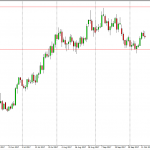Written by Mark Burgess, Columbia Threadneedle Investments
Since late August, equity markets have been volatile and this trend shows few signs of abating in the short term. To my mind, three issues are unsettling markets:
In China, the authorities appear to have adopted a “box of chocolates” approach to capitalism. In other words, they have been happy to support the aspects of capitalism that they like (such as rising living standards and the growing importance of China on the global stage) but they have been less pleased when capitalism has produced “undesirable” outcomes — such as falling equity markets. It remains to be seen whether the recent stock market slump will derail China’s economic reform program, but what we can say with certainty is that the economy is slowing appreciably. The most important aspect of the slowdown is whether China secures a transition to lower but better quality growth, which ultimately would be supportive of risk assets, or whether something more serious occurs.
In my view, a slowdown in growth to around 4–5% would not be disastrous if the Chinese authorities can manage the transition to better quality growth and move China up the economic value chain. However, there are obviously concerns that the authorities will do whatever they have to in order to shore up the economy, including reverting to large-scale and potentially unproductive infrastructure projects, and propping up enterprises that should have been allowed to fail. Even if China does not go down the infrastructure route, the devaluation genie is now out of the bottle and has raised the specter that China and its Asian competitors could export deflation to the rest of the world. While China has devalued, its currency remains expensive relative to Asian and EM peers, which has led to fears that there could be more FX weakness to come.














Leave A Comment